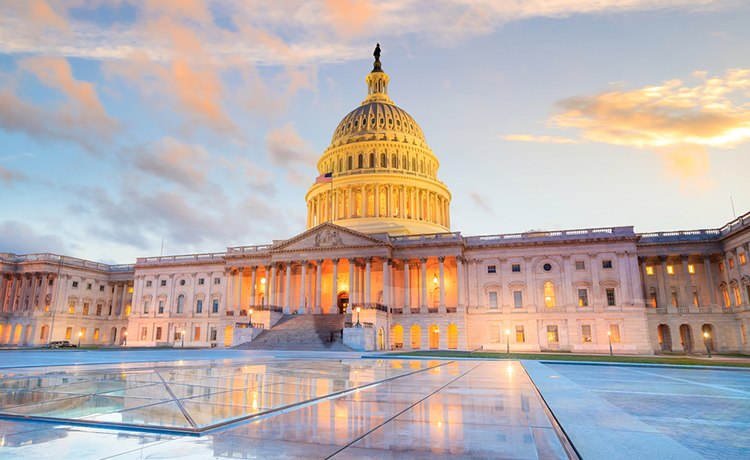Supreme Court emphasizes what DC Circuit didn't decide as it allows release of Trump records

Image from Shutterstock.
The National Archives and Records Administration began turning over hundreds of pages of presidential records to the House committee investigating the Jan. 6, 2021, U.S. Capitol riot after the U.S. Supreme Court declined to block their release Wednesday.
The Supreme Court rejected former President Donald Trump’s emergency request to block release of the records in an unsigned order, report the New York Times, the Washington Post, Law.com and SCOTUSblog.
The New York Times reported that records were released after the decision but later revised its story after a committee spokesperson said only some of the documents had been delivered.
Justice Clarence Thomas was the only dissenter. He did not issue an opinion.
The order allows release of three sets of records totaling about 800 pages and a fourth set already scheduled for release, according to Law.com.
Trump’s bid to block release of the records took aim at federal laws, regulations and executive orders that say a current president may waive a privilege claim by a former president, unless a court intervenes. Biden had waived the privilege.
The U.S. Court of Appeals for the District of Columbia Circuit ruled against Trump in December, saying he had not provided any basis for overriding Biden’s judgment. Trump had failed “to allege, let alone demonstrate” that he would suffer any harm from disclosing the records, the appeals court said.
The Supreme Court’s order said the D.C. Circuit had concluded that Trump’s privilege claims would have failed even if he was currently in office. That means that any discussion about Trump’s status as a former president must be regarded as nonbinding dicta, the order said.
“The questions whether and in what circumstances a former president may obtain a court order preventing disclosure of privileged records from his tenure in office, in the face of a determination by the incumbent president to waive the privilege, are unprecedented and raise serious and substantial concerns,” the Supreme Court said.
“The court of appeals, however, had no occasion to decide these questions,” the Supreme Court said, because it analyzed the case without regard to Trump’s status as a former president.
Justice Brett M. Kavanaugh wrote an opinion regarding the court’s denial of Trump’s bid to block the records.
He said the D.C. Circuit had suggested that a former president can’t successfully invoke the presidential communications privilege if the current president doesn’t support the privilege claim. That part of the opinion is nonbinding dicta, as the Supreme Court makes clear in its order, he said.
“Moreover, I respectfully disagree with the court of appeals on that point,” he said. “A former president must be able to successfully invoke the presidential communications privilege for communications that occurred during his presidency, even if the current president does not support the privilege claim.”
He added that the privilege is not absolute, however, and it can be overcome.
According to the New York Times and SCOTUSblog, the records at issue included proposed talking points for Trump’s former press secretary; a handwritten note regarding Jan. 6; a draft of Trump’s speech at the rally that happened before the Capitol attack Jan. 6; a draft executive order on election integrity; and White House diaries, schedules and call logs.
See also:
ABAJournal.com: “Does executive privilege still protect Trump after his term ends? Fight brews over congressional subpoenas”
ABAJournal.com: “Trump’s executive privilege bid could be hindered because of his use of campaign funds”
Updated Jan. 21 at 8:38 a.m. to correct date and to add revision on release of the documents from the New York Times story.



